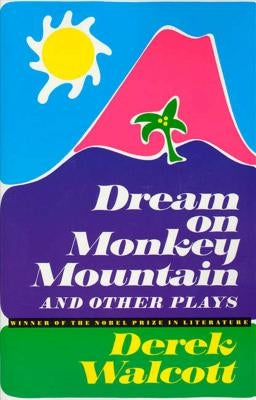Farrar, Straus and Giroux
Dream on Monkey Mountain and Other Plays
Dream on Monkey Mountain and Other Plays
Couldn't load pickup availability
On a Caribbean island, the morning after a full moon, Felix Hobain tears through the market in a drunken rage. Taken away to sober up in jail, all that night he is gripped by hallucinations: the impoverished hermit believes he has become a healer, walking from village to village, tending to the sick, waiting for a sign from God. In this dream, his one companion, Moustique, wants to exploit his power. Moustique decides to impersonate a prophet himself, ignoring a coffin-maker who warns him he will die and enraging the people of the island. Hobain, half-awake in his desolate jail cell, terrorized by the specter of his friend's corruption, clings to his visionary quest. He will try to transform himself; to heal Moustique, his jailer, and his jail-mates; and to be a leader for his people. Dream on Monkey Mountain was awarded the 1971 Obie Award for a Distinguished Foreign Play when it was first presented in New York, and Edith Oliver, writing in The New Yorker, called it a masterpiece.
Three of Derek's Walcott's most popular short plays are also included in this volume: Ti-Jean and His Brothers; Malcochon, or The Six in the Rain; and The Sea at Dauphin. In an expansive introductory essay, What the Twilight Says, the playwright explains his founding of the seminal dramatic company where these works were first performed, the Trinidad Theatre Workshop. First published in 1970, Dream on Monkey Mountain and Other Plays is an essential part of Walcott's vast and important body of work.Author: Derek Walcott
Publisher: Farrar, Straus and Giroux
Published: 01/01/1971
Pages: 336
Binding Type: Paperback
Weight: 0.65lbs
Size: 8.20h x 5.50w x 1.00d
ISBN: 9780374508609
About the Author
Since 1961, Derek Walcott has been director of the Trinidad Theatre Workshop, as well as its chief playwright. The appearance of his first collection of plays, which has had several printings since 1970, was a literary event. Dream on Monkey Mountain won the Obie Award for a Distinguished Foreign Play, when produced in New York in 1971, and was deemed "a masterpiece" by Edith Oliver in The New Yorker.
Share


